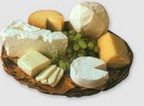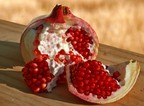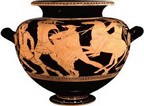Greece provides an ideal climate for growing lemons, olives, zucchini (courgettes) beans, eggplant (aubergines) and peas. This type is of climate is also great for herbs such as basil and mint, oregano, garlic and thyme which grows in abundance on the hillsides.These herbs are grown on large scales which are pollinated by the bees giving the locally produced honey a unique taste. Few of the islands in Greece have larva rock which provides an idyllic surface to produce some of the delectable ancient Greek food.
Over the period of time, Greek cuisine has been influenced by many foreign cultures. Foreign cultures have influenced Greek cuisine, and this can be recognised often. It can be noticed that how with the history of Greece there was a constant change in the cuisine. For example,a delicacy of Greece, Gyros could be traced back to Turkish invasion in 1453. It is said to come from doner kebabs of the Turkish cuisine. There are many Eastern influences in the Greek cuisine which came from various invasions of Alexander the Great. This eastern influence of foods such as pomegranate which originally is a fruit of east is depicted in many ancient Greek arts. Pomegranates till date are very symbolic to Greece and are an integral part of festivities of religious occasions and even weddings.
But when we exclusively talk about ancient Greek food, then in those times there used to be a slightly different menu. Though most of the foods of ancient Greece is similar to what we have today in our diet but it did not include many of recipes and other parts which have become a part of the modern Greek cooking. Food such as potatoes, tomatoes, bananas and peppers arrive in Greece in the late 15th century. Oranges, Lemons, rice and eggplant also came later.
The early Greek diet consisted of foods that contributed to a varied diet. Fruits, vegetables and legumes were a major part as they were easy to be raised in the rocky landscape of Greece. Fish was also a favourite and was an important part of the menu. An early breakfast was taken just after the sunrise and usually consisted of wine and bread. Lunch also consisted of bread, wine and was accompanied with some figs, cheese, olives, or fish.
The evening supper was the main meal of the day. It basically consisted of many kinds of fruits, vegetables, fishand even honey cakes. Sugar was not known in Greece till later times so earlier honey solved the purpose of a sweetener.
Fish was an integral part of Greek diet as it was an important source of protein. Beef was rarely eaten because of its Beef was very high cost. Pork and Beef was provided to underprivileged people only during the time of religious festivities.
Wine was the main drink in ancient Greek times. It was mixed with water as drinking wine directly was considered to be barbaric. Whereas milk was seldomly drunk and was chiefly used in the production of cheese.
Water was another option as a drink after wine.


